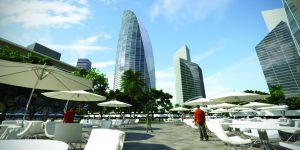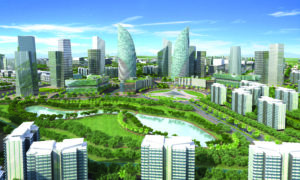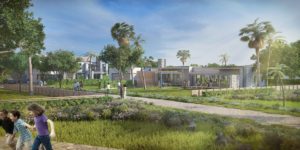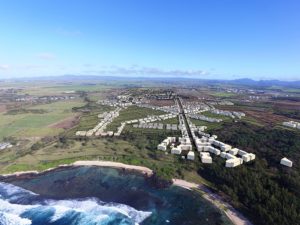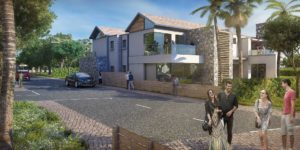SMART CITIES
12/07/2021|Bentel Associates International
Smart cities are the embodiment of a holistic system that integrates components such as big data, end-users, and the supporting built environment. Smart Cities make use of Information and Communication Technologies to enable interactions between these components, converting data into knowledge allowing for scalable interventions. Smart Cities furthermore allow for real word data to be collected and analysed, improving the ability to predict and manage urban flows, to interpret end-user experience, and advance the collective intelligence of cities and their components.
Smart cities are a part of urbanisation and should be addressed from the basis of adaptability and resilience, ensuring that our cities can meet and predict the evolving needs of residents. A smart city approach that integrates knowledge feedback loops into its operations is fundamental to this process. This emphasizes the development goal to design for ‘human need’ and ‘quality of life’ within ecological and economic constraints while understanding that our cities are living systems, not finite products assigned to a fixed temporal and spatial scale.
At Bentel, we have designed some of these smart cities namely: Wave High Tech City (India) and Mon Tresor (Mauritius).
Wave High Tech City is spread across 4500 acres, Wave City is conceived as one of India’s largest smart cities. The City is master planned as a “high-tech city” incorporating state of the art intelligent infrastructure; Central Command Centre, Smart Meters, Intelligent Traffic Management, Waste Management, 24X7 CCTV surveillance, Weather substation, Water management, Complete Fiber Optic Connectivity and lots more. Master Planned by Bentel, Wave City features open spaces, new well connected residential neighbourhoods and a high density financial district.
The project boasts more than 750 acres of green spaces, wide roads conceived as boulevards and a congestion-free BRT network ensuring smooth traffic flow. Other planned uses include, hospitals, a medical university, religious places, educational institutions, local shopping centres, malls and multiplexes.
Wave Hi Tech City, India
Mon Trésor Smart City is an emerging coastal town, situated in close proximity to Mauritius’ international airport, in the Grand Port district, south-east of the island. The project involved the conceptualisation of a masterplan intervention for this development.
The initial proposed offering includes commercial, leisure, healthcare, educational and residential components within a planned urban fabric and intervention. The vision for the development was to establish a cohesive infrastructure, conservation of biological diversity and the preservation of historical and natural heritage, all conceptualised within a vibrant district and planned approach.
The commercial components included retail, office and logistic park offerings, including a central square, a planned ‘high street’, offices and a logistics park. The leisure component included a proposed sports complex, further promoting the development’s mantra of a healthy lifestyle, and a connection to the sea with a Beach Club. The residential component was planned in a mix of villas, apartments, townhouses and a retirement village, all designed within a local vernacular. An educational and healthcare zone was established to further enhance the multi-use and integrated approach.
Particular attention was paid to existing buildings within the project area and the rejuvenation of these buildings within the proposed fabric. Further enhancing the sustainable approach of the development, green mobility was a major consideration and is integrated using cycle tracks and wide pedestrian boulevards along the various natural corridors.
Mon Tresor Smart City, Mauritius
In order to promote high quality urbanisation, a user-centred approach is required. We need to change our collective paradigm as designers and shapers of our built environments towards creating usable built environments instead of just functional environments. By understanding the user-centred requirements in the Information Age of today, represented by knowledge-based societies, we can understand the criteria that quantifiably determine quality of life and how to approach it in a sustainable manner so that interventions of today are of equal benefit to tomorrow’s generations.
About Bentel Associates International:
Bentel is a leading African and Indian-based design firm established in 1960 which has a dedicated and focused service offering across multiple sectors, comprising retail, office, residential and hospitality projects. Today BAI is an award-winning architectural firm known for having designed many unique and landmark developments throughout the African continent and the Middle-East.
For any media enquiries please contact:
Palesa Moroeng
Palesa.m@bentel.net
010 590 7900
082 841 4111

